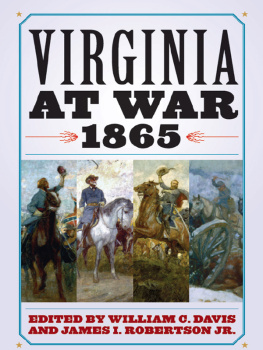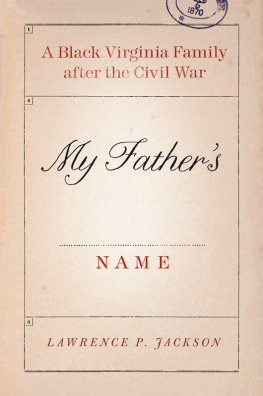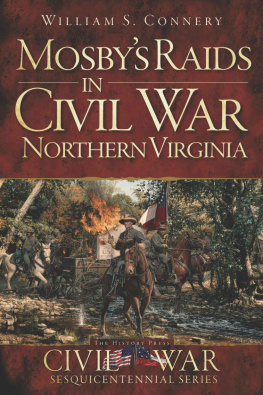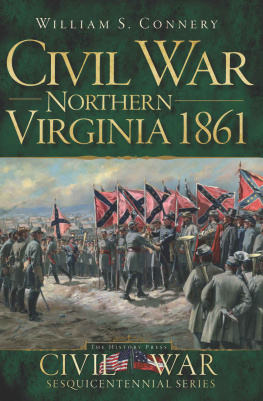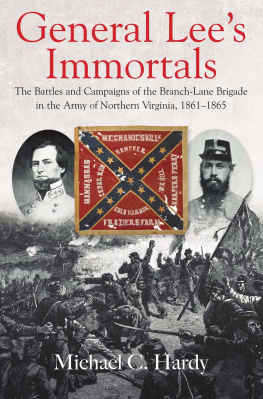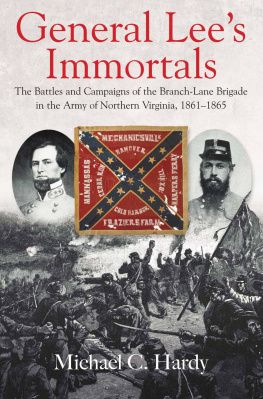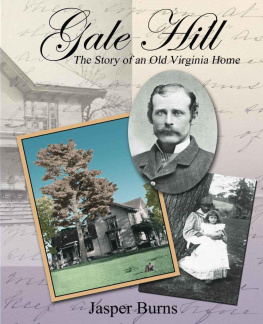THE PLANTATION
AT PROSPECT HILL
Charleston, SC
www.PalmettoPublishing.com
The Plantation at Prospect Hill
Copyright 1999, 2003, 2009, 2014, 2016, 2020 by William M. Sheehan, Jr.
All rights reserved
No portion of this book may be reproduced, stored in a retrieval system, or transmitted
in any form by any meanselectronic, mechanical, photocopy, recording, or otherexcept
for brief quotations in printed reviews, without prior permission of the author.
ISBN-13: 978-1-64990-238-2
ISBN-10: 1-64990-238-7
CONTENTS
PROLOGUE Somewhere in central Virginia April 1698
CHAPTER 1 Sanco remembers August 1932 at Prospect Hill Plantation
CHAPTER TWO Richmond, VA April 18, 1861
CHAPTER 3 Charlotte, North Carolina June 1861
CHAPTER 4 Prospect Hill Plantation
CHAPTER 5 Charlotte, NC May, 1863
CHAPTER 6 In camp just outside Orange Courthouse, Virginia
CHAPTER 6 Prospect Hill Plantation December 1864
CHAPTER 7 Palmyra, Virginia under a bridge, April 1865
CHAPTER 8 Richmond, VA July 1875
CHAPTER 9 Prospect Hill Plantation December 1875
CHAPTER 10 Poindexter, VA Prospect Hill March 1876
CHAPTER 11 Prospect Hill June 1889
CHAPTER 12
CHAPTER 14 June 10, 1912
CHAPTER 15 Gettysburg, Pennsylvania July 2nd, 1913
EPILOGUE
A Word About This Novel
Many things have changed since the end of the Civil War in Virginia. Today Black Lives Matter is all in the news and on TV it seems every night. It has been long overdue. Even Gone With the Wind has been seen as racist and Margret Mitchells book and the Oscar winning movie have been vilified. Aunt Jemima Pancakes and Uncle Bens rice are soon to be off the grocery shelves. Why now? And why so loud in coming? I can now see that from the blacks perspective, it is long overdue. There is systemic racism in America today
I grew up in the North and never knew any of this. I had never heard of Juneteenth. Now I know that I had been wrong. I remember when blacks were allowed to use community pools only after hours or on certain days, even on Long Island where I grew up. We condoned racism in our own way. We never were taught the history of the Jim Crow South. And we are ashamed today. You watch our black brothers and sisters marching alongside whites for justice on TV today. I can see that now.
I am convinced that these things will finally change for the better. And not someday, but now. Politically, we are ready but how should I write my novel about the Civil War? I have lived at Prospect Hill for 40 years and felt I knew all about the people and places of those times. But today? Would this novel add to all this sense of treating blacks like slaves again? I asked my manager, Melvin Henson, who is a descendant of the slaves in the area how he felt about calling the former slave quarters by their original names. Even Monticello, Jeffersons former home, had begun calling these buildings Servant Quarters. Melvin said these men and women were slaves, not servants, back then so why call them anything else. Another black man, Mr. Shelton, had worked on this old house and took me around my own home and explained to me how them ol black folks sure knew how to build em to last in them days. I remember him beaming with pride that day like it was yesterday. So, in honor of the many black men and women that once lived through these times, I have decided to write these pages as they were lived. I will not worry about hurting anyones feelings. This is the way it was and this is what I will write for my audience.
I hope and pray you will agree and enjoy this novel about the Old South as it once was.
William M Sheehan, Jr Sept 2020
Dedication
This book is dedicated to all the many women in my life: To Adele, my mother who passed away so many years ago but is still in my heart; To Mireille, my first love as teenagers and who followed me through the innkeeping wars and died so tragically; To Anne, who taught me to let go and finally retire; To Marilue, our first employee and our first retiree; To Kimberly, our first secretary who raised her two daughters at Prospect Hill; To Jerrie, who was my manager and took such great care of our brides; To Donna, who made sure people got paid; To Valera, who made the best cookies; To Pat, who was our last chef. I also want to thank Melvin, who we hired as a teenager part time and became manager of our facility and who worked for us for almost forty years and who did everything including all of our maintenance. I could never have succeeded without all of you. Thank you from the bottom of my heart.
Roger Thompson ran a finger under his collar and felt how soaked it had become. He was damp and cold from the three days of pouring rain that was only now beginning to lighten as he walked steadily along an old trail heading West. He was not soaked through since he was wearing the full set of buckskins he had made for him by an Indian family outside of Williamsburg for this trip. He was glad that both pants and jacket had shed most of he rain. He could see the sky ahead was beginning to clear. This rain is almost over, he thought. The daylight grew ever brighter as the morning progressed. He had prepared well for his journey into the West. He was now free to seek his way in this new world. This was virgin country with settlers moving West constantly. He had not seen any other men in the last three days. This was more like it, he thought. Less people, was the way he preferred it. Thompson was young, not too tall, yet solidly built. He had grown since his arrival in this new country, both in wisdom as well as in size. Standing just under six feet tall, with red hair that had been turning darker during his term as an indentured servant over the past seven years. That was all over now. He had paid in full by working for Ebaneezer Godfrey for the full term of his indenture. He had arrived in Jamestown at 15 years of age seeking his way in the New World. He was his fathers fourth son and knew from the beginning that he would never inherit the small family farm just outside of London. Now there was a stinking town if ever there was one, he thought as he remembered his youth. When he turned 13 years old his parents had sat him down and discussed his future. The eldest son, William, was going to inherit their farm and he was already courting Sally Reynolds. Everyone knew they would soon wed and begin having children so Roger was advised that he would need to make his way elsewhere. Many of his friends were in similar situations. They had to learn a trade and live in a town or move somewhere else in order to make their way.
He would miss his family but he was also motivated to find adventure, to move away, make his fortune, or at least begin farming, and then look for someone to marry. But first he had to find his way as his father had said. He loved farming, surviving off the land, raising crops and tending animals. He had always hated cities, like London, which he had visited twice with his father the first time and later with his brother, William. He detested the stink most of all. Everywhere they went it stunk, it seemed to him. From the filth in the streets, the rotting smell of garbage strewn everywhere, to the manure running down the center of the streets when it rained. It all smelled bad to him. The air did not smell like that back on the farm. At his home it smelled fresh, almost sweet to Roger. When he first arrived in Jamestown, the ir seemed almost the same. But the streets did not run and smell with excrement. And the sky was so blue above. On the ship he was cramped below decks and went topside to breathe in fresh air whenever he could. He did not make many friends on this voyage since he was so young and the men had mostly been older. The few women on board had been kept separate from the men since most were be-trothed to others who had arrived years before. Roger watched everything and everyone with a discerning eye. He knew he was still not fully matured and did the same when he landed. He soon found a family he felt would be fair to him and indentured himself for the normal term, seven years, learning all he could until he was now free. He was little more than a slave for those seven years with the Godseys but he had learned well and grew


